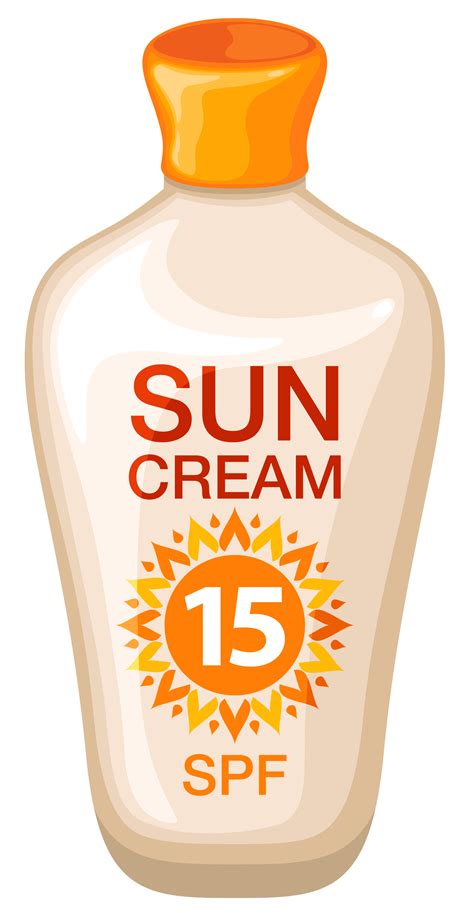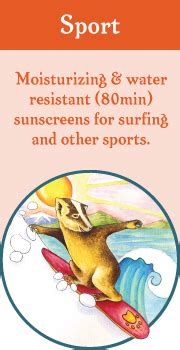Irritant contact dermatitis is a skin reaction that may happen after using sunscreen, especially in individuals with a history of eczema or sensitive skin. This condition can cause irritation in the area where the sunscreen was applied, resulting in mild redness or a stinging sensation (even without any visible redness).
How do you make sunscreen not sting?
Quick tip 1: Opt for Mineral Sunscreen
If you’re someone who experiences stinging, burning, or watering eyes after applying sunscreen, it’s time to switch to mineral sunscreen. While Avobenzone is often blamed for these reactions, other chemical filters can also cause them. Moreover, fragranced sunscreens can trigger a reaction when applied close to the eye area. Mineral sunscreens, on the other hand, are made with natural ingredients like zinc oxide and titanium dioxide, which sit on top of the skin and reflect the sun’s rays.
They are less likely to cause irritation and are a great option for those with sensitive skin. So, the next time you’re shopping for sunscreen, make sure to check the label and choose a mineral-based option for a more comfortable and safe experience.
What ingredient makes sunscreen sting?
It’s not uncommon to experience a stinging or unpleasant sensation around your eyes when using products that contain avobenzone. This can happen even during normal, non-sweaty daily activities. While avobenzone is an effective ingredient for protecting your skin from harmful UV rays, it can also cause irritation for some people. If you’re experiencing discomfort when using products with avobenzone, consider trying alternative sunscreens that use different ingredients or formulations.
It’s important to find a sunscreen that works for you and doesn’t cause any unwanted side effects.
How do you know if your face is allergic to sunscreen?
If you suspect that your face is allergic to sunscreen, there are a few signs to look out for. These may include redness, itching, swelling, or a rash on the face or neck. In some cases, you may also experience hives or blisters. If you notice any of these symptoms after applying sunscreen, it’s important to stop using the product immediately and seek medical advice.
A dermatologist can help you determine whether you are allergic to a specific ingredient in the sunscreen or if you have a more general sensitivity to sunscreens. They may also recommend alternative products or suggest other ways to protect your skin from the sun.
Can too much sunscreen burn your face?
It’s not uncommon for some sunscreens to cause a stinging sensation on your face, especially around the delicate skin near your eyes. Despite this, it’s important to continue wearing sunscreen daily to protect your skin from harmful UV rays. While the stinging sensation may be uncomfortable, it’s a small price to pay for the long-term benefits of sun protection. Additionally, there are many different types of sunscreens available, so it may be worth trying out a few different brands or formulations to find one that works well for your skin type.
Why you shouldn’t wear sunscreen everyday?
It’s important to protect your skin from the sun’s harmful rays, but did you know that wearing sunscreen every day can have some downsides? One potential issue is excess chemical absorption, as many sunscreens contain chemicals that can be absorbed into the skin and potentially cause harm. Additionally, long-term use of sunscreen can lead to skin damage, as it can prevent the skin from producing vitamin D, which is essential for healthy skin and bones. While it’s still important to wear sunscreen when spending time outdoors, it’s also important to be aware of these potential drawbacks and take steps to mitigate them.
Can sunscreen cause prickly heat?
Another factor that can contribute to blocked sweat glands is the use of waterproof sunscreen. These types of sunscreens often contain ingredients like mineral oils and silicone that can clog pores and prevent sweat from escaping the skin. This can exacerbate symptoms of prickly heat and make it more difficult for the body to regulate its temperature. It’s important to choose sunscreens that are non-comedogenic and allow the skin to breathe, especially if you’re prone to sweating or have sensitive skin.
What’s the best sunscreen to prevent prickly heat?
“`Prickly heat, also known as heat rash, is a common skin condition that occurs when sweat gets trapped under the skin. To prevent prickly heat, it’s important to use a sunscreen that is specifically designed for sensitive skin. Look for a sunscreen that is labeled as “non-comedogenic” and “oil-free” to avoid clogging pores. Additionally, choose a sunscreen with a high SPF of at least 30 to protect your skin from harmful UV rays.
Some recommended brands for preventing prickly heat include Neutrogena Sensitive Skin Sunscreen, La Roche-Posay Anthelios Sunscreen, and Aveeno Protect + Hydrate Sunscreen. It’s also important to apply sunscreen generously and frequently, especially
What ingredient am I allergic to in sunscreen?
The American College of Allergy, Asthma, and Immunology has identified several chemical sunscreen ingredients that can trigger allergic reactions in the skin. These include oxybenzone (benzophenone-3), dibenzoylmethanes, cinnamates, and benzophenones. It’s important to be aware of these ingredients and read labels carefully when choosing a sunscreen to avoid any potential allergic reactions.
What sunscreen irritates skin?
Using chemical sunscreens that contain fragrances and preservatives can increase the likelihood of experiencing adverse reactions such as stinging, redness, or a burning sensation. However, these reactions are typically temporary and should subside once you discontinue use of the sunscreen in question.
Which brand sunscreen is best for sensitive skin?
When it comes to choosing a sunscreen for sensitive skin, it’s important to look for brands that are specifically formulated for this skin type. Some of the best brands for sensitive skin include La Roche-Posay, Aveeno, and Neutrogena. These brands offer sunscreens that are free of fragrances, dyes, and other potential irritants. Additionally, it’s important to choose a sunscreen with a high SPF rating to ensure maximum protection from the sun’s harmful rays.
Always remember to patch test any new sunscreen before applying it all over your face and body to ensure that it doesn’t cause any adverse reactions.
What are the least irritating sunscreen ingredients?
Titanium dioxide is a mineral that is highly effective in protecting the skin from harmful UVA and UVB rays. It is also gentle on sensitive skin and does not clog pores, making it an ideal choice for those who are prone to breakouts. Once applied, it becomes invisible, so you don’t have to worry about any unsightly white residue. If you’re looking for a sunscreen that you can wear every day, titanium dioxide is a great option.
It provides reliable protection against the sun’s rays, without causing any irritation or discomfort.
What sunscreen is bad for sensitive skin?
If you’re looking to avoid certain ingredients in your sunscreen, there are four that you should be aware of, according to Patel. Oxybenzone and PABA (para-aminobenzoic acid) are two chemicals that you should steer clear of. These ingredients have been known to cause allergic reactions and can potentially disrupt hormones. It’s best to opt for sunscreens that don’t contain these ingredients to ensure that you’re protecting your skin without any negative side effects.
What brands of sunscreen are not safe?
Several common household brands — including Sun Bum, Neutrogena, Banana Boat, and CVS-brand sunscreen — were all found to contain unsafe levels of benzene, according to Valisure’s test. The contaminated sunscreens include both chemical and mineral formulas.
Should I put sunscreen when my skin is sensitive?
According to Dr. Bucay, individuals with sensitive skin should opt for a physical sunscreen that contains zinc oxide or titanium dioxide. These ingredients are inert and less likely to cause skin irritation. Additionally, it is important to avoid sunscreens with added fragrance, as this can further irritate the skin.
By choosing the right sunscreen, those with sensitive skin can protect themselves from harmful UV rays without exacerbating their skin concerns.
What is the safest sunscreen to use?
Dermatologists recommend using a “mineral” or “physical” sunscreen containing zinc oxide or titanium dioxide if you’re worried about the health effects of sunscreen. These are the only ingredients that the FDA has deemed “generally recognized as safe and effective.” By choosing a mineral sunscreen, you can protect your skin from harmful UV rays without exposing yourself to potentially harmful chemicals. It’s important to prioritize your health and choose a sunscreen that will keep you safe in the sun.
What does a sunscreen rash look like?
Sunscreen allergy symptoms typically appear as a red, itchy rash with bumps in the area where the sunscreen was applied. According to Dr. Hsu Blatman, this type of allergy usually presents as a delayed rash, similar to that of poison ivy. In addition to the rash, there may also be swelling or fluid-filled blisters.
How do you get rid of sunscreen rash on face?
According to Zeichner, if you experience an allergy to sunscreen, it is important to cleanse your skin right away. In cases where the inflammation is severe, you can use an over-the-counter 1 percent hydrocortisone cream to soothe the affected area. However, if the reaction is mild, it may be best to simply leave it alone or apply a gentle moisturizer.
What happens if you put sunscreen on your face everyday?
The main takeaway is that exposure to the sun’s UV rays can lead to skin cancer and premature aging. This damage can accumulate over time, making it crucial to protect your skin by wearing sunscreen daily. By doing so, you can significantly reduce the risks associated with UV exposure and keep your skin healthy and youthful for years to come.
How long does a sunscreen rash last?
Exposure to the sun can exacerbate a rash caused by an allergy to sunscreen. To avoid further irritation, it’s crucial to avoid direct sunlight until the skin has fully recovered. The healing process can take several days, depending on the severity of the rash.
Related Article
- Why Does Sunscreen Burn My Face?
- Why Does Subway Give Me Diarrhea?
- Why Does Subway Ask For Tips?
- Why Does Suboxone Make Me Sleepy?
- Why Does Starlight Look So Skinny?
- Why Does Stardew Valley Keep Crashing?
- Why Does Spironolactone Smell Like Weed?
- Why Does Spironolactone Smell Like Skunk?
- Why Does Spironolactone Smell Like Mint?
- Why Does Spectrum Keep Going Out?


